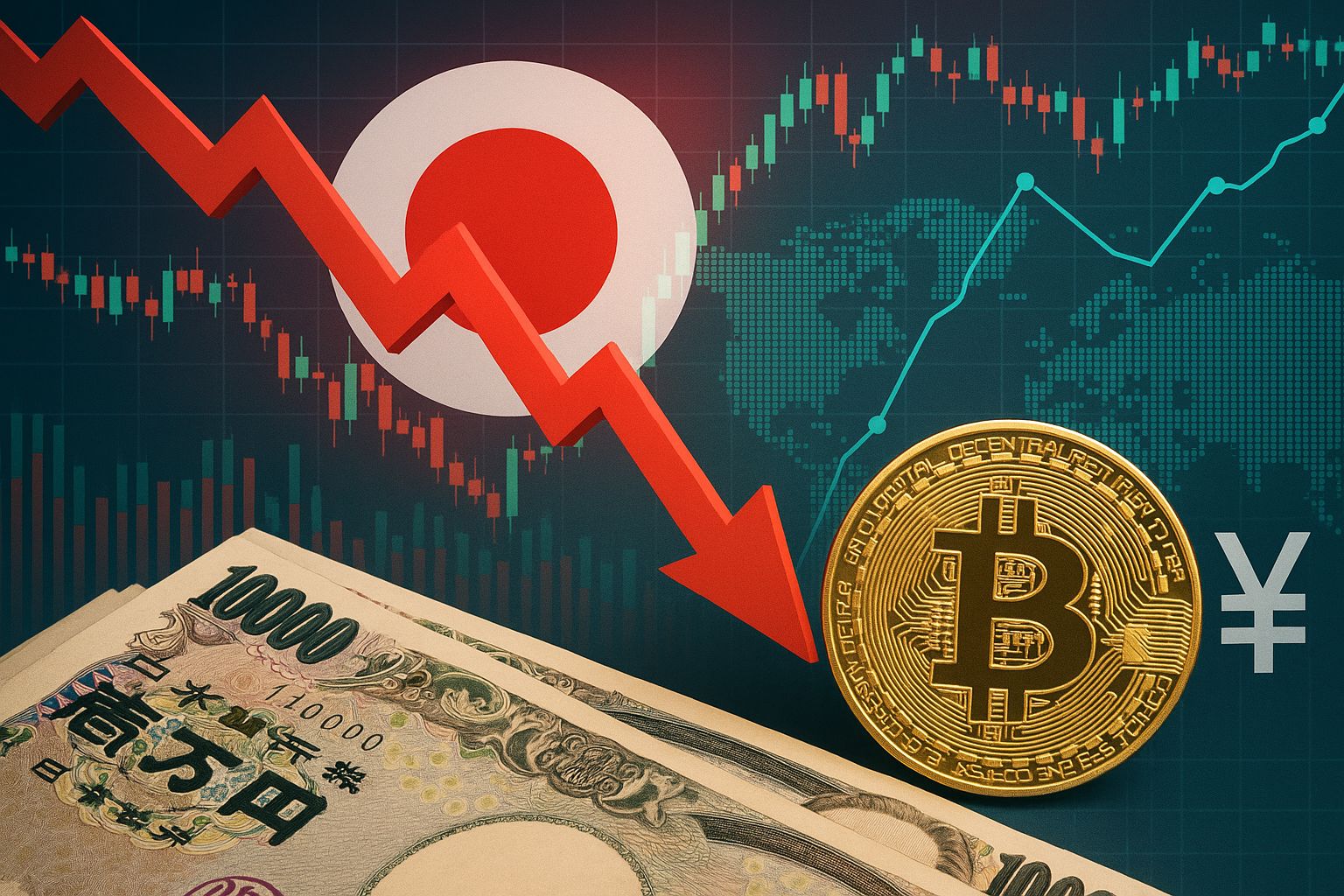
- Japan’s 40-year bond yield rose to 3.774% on Thursday.
- Five-year CDS spreads reached 21.73 basis points on 20 November.
- GDP contracted in Q3 2025 and inflation reached 3% in October.
Japan’s new stimulus package is setting off sharp reactions across global markets, with the yen sliding to its weakest point against the US dollar since January 2025 and long-term bond yields rising to record levels.
The cabinet approved a 21.3 trillion yen package on Friday, the largest since the COVID-19 period, and the announcement immediately shifted expectations in currency, bond, and crypto markets.
The scale of the support and the pressure on Japan’s finances are now pushing investors to reconsider how they assess global risk, particularly as liquidity conditions evolve.
Economic reset
The package focuses on easing price pressures, supporting growth, and strengthening defence and diplomatic capacity.
Local government grants and energy subsidies form a key part of the plan, and households are expected to receive around 7,000 yen in benefits over three months.
The government also aims to lift defence spending to 2% of GDP by 2027.
The supplementary budget is expected to pass before the end of the year, although the ruling coalition currently holds only 231 of 465 Lower House seats.
The support comes during a period of weakening growth.
Japan’s GDP fell 0.4% in the third quarter of 2025, equal to a 1.8% annualised contraction.
Inflation has remained above the Bank of Japan’s 2% target for 43 months and reached 3% in October 2025.
Policymakers expect the new measures to lift real GDP by 24 trillion yen and generate a total economic impact near 265 billion dollars.
Rising market pressure
The fiscal boost has intensified concerns about long-term debt sustainability and market stress.
Five-year credit default swaps on Japanese government bonds reached 21.73 basis points on 20 November, the highest level in six months.
The country’s 40-year bond yield rose to 3.697% immediately after the announcement and climbed further to 3.774% on Thursday.
Every 100-basis-point increase in yields raises annual government financing costs by about 2.8 trillion yen, which has drawn attention to the strain on public finances over time.
Nikkei reports lingering caution about the continued use of fiscal stimulus beyond emergencies, adding another layer to investor concerns.
This debate has become more relevant as the yield curve shifts and Japan’s borrowing costs rise.
These movements are also important for the 20 trillion dollar yen-carry trade. Investors typically borrow yen at low rates and invest in higher-yielding markets overseas.
A mix of higher yields and sudden currency moves can force unwinding.
Historical data show a 0.55 correlation between yen-carry trade reversals and S&P 500 declines, which adds another source of volatility.
Yen reaction
The yen dropped sharply after the stimulus announcement, prompting speculation about future currency stability and the potential for intervention.
October exports rose 3.6% year on year, but the increase was not enough to ease concerns about broader economic pressure.
The scale of fiscal support and the persistence of inflation have become central factors in how global markets interpret Japan’s next steps.
Crypto shift
These conditions are feeding directly into crypto markets.
A weaker yen tends to drive Japanese investors toward alternative assets, including Bitcoin, especially during periods of rising liquidity.
Experts have noted that Japan’s decision adds to a global environment that already includes potential US Federal Reserve easing, Treasury cash movements, and continued liquidity support from China.
Together, these factors are creating conditions that could lift crypto demand into 2026.
At the same time, higher long-term yields pose a risk.
If yen-carry trades unwind quickly, institutions may be forced to sell assets, including Bitcoin, to meet liquidity needs.




